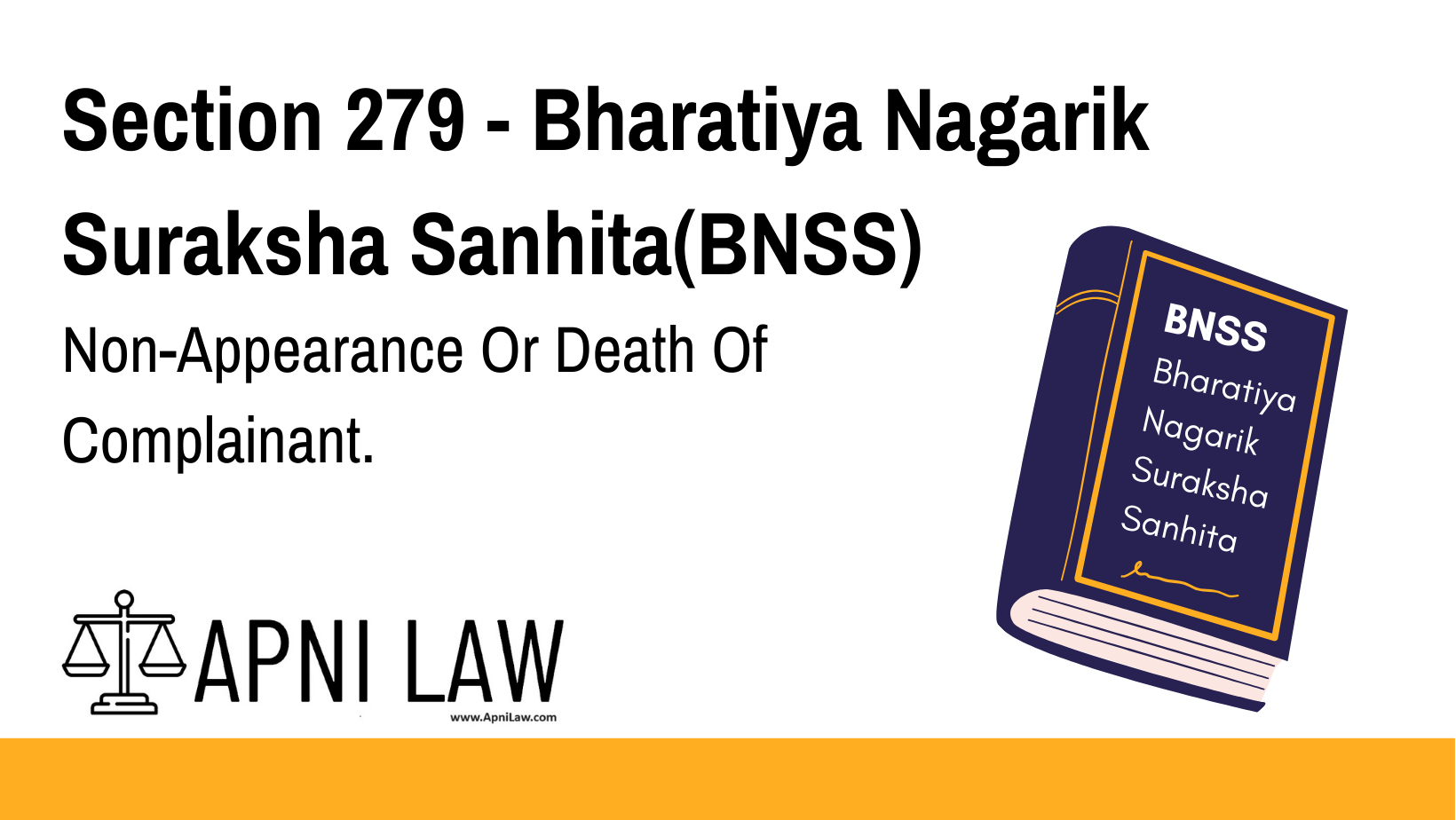Code: Section 279 BNSS
279.
(1) If the summons has been issued on complaint, and on the day appointed for the appearance of the accused, or any day subsequent thereto to which the hearing may be adjourned, the complainant does not appear, the Magistrate shall, notwithstanding anything hereinbefore contained, acquit the accused, unless for some reason he thinks it proper to adjourn the hearing of the case to some other day:
Provided that where the complainant is represented by a pleader or by the officer conducting the prosecution or where the Magistrate is of opinion that the personal attendance of the complainant is not necessary, the Magistrate may dispense with his attendance and proceed with the case.
(2) The provisions of sub-section (1) shall, so far as may be, apply also to cases where the non-appearance of the complainant is due to his death.
Explanation of Section 279 BNSS
Section 279 of the Bharatiya Nyaya Sanhita (BNSS) addresses the scenario where a complainant fails to appear in court after a summons has been issued for a criminal case. If the complainant does not attend on the appointed day or any subsequent day to which the case is adjourned, the Magistrate is generally required to acquit the accused. However, the Magistrate has the discretion to adjourn the hearing or proceed with the case if there are specific reasons or if the complainant is represented by a pleader or the prosecution officer.
This section also allows for cases where the complainant’s non-appearance is due to death, with the same provisions applying in such cases.
Illustration
Example 1: Complainant Fails to Appear Without Valid Reason
A complainant files a case against an individual for defamation. The court issues a summons for the accused to appear. However, on the appointed day, the complainant does not show up in court without any valid reason. In such a case, the Magistrate may acquit the accused unless there is a reason to adjourn the case.
Example 2: Complainant’s Representative Appears
In a case of assault, the complainant is unable to attend but is represented by a lawyer. The Magistrate decides to proceed with the case, as the complainant’s lawyer is present, and the Magistrate is satisfied that the complainant’s presence is not necessary.
Example 3: Complainant’s Death
A complainant who has filed a case for fraud passes away before the trial begins. The provisions of Section 279 apply, and the Magistrate may decide to proceed with the case or dismiss it due to the complainant’s death, depending on the circumstances.
Common Questions and Answers on Section 279 BNSS
1. What happens if the complainant does not appear in court?
- Answer: If the complainant fails to appear, the Magistrate is required to acquit the accused unless there is a reason to adjourn the case.
2. Can the Magistrate proceed if the complainant is not present?
- Answer: Yes, the Magistrate can proceed if the complainant is represented by a pleader or the officer conducting the prosecution or if the Magistrate determines that the complainant’s personal attendance is unnecessary.
3. Does the death of a complainant affect the case?
- Answer: Yes, if the complainant passes away, the provisions of Section 279 allow the same process to be followed, where the Magistrate can either proceed with the case or acquit the accused.
Conclusion
Section 279 of the BNSS ensures that a case is not unnecessarily delayed due to the complainant’s non-appearance. It balances the rights of the accused with the complainant’s ability to proceed through their legal representative, and even takes into account exceptional cases like the complainant’s death.










